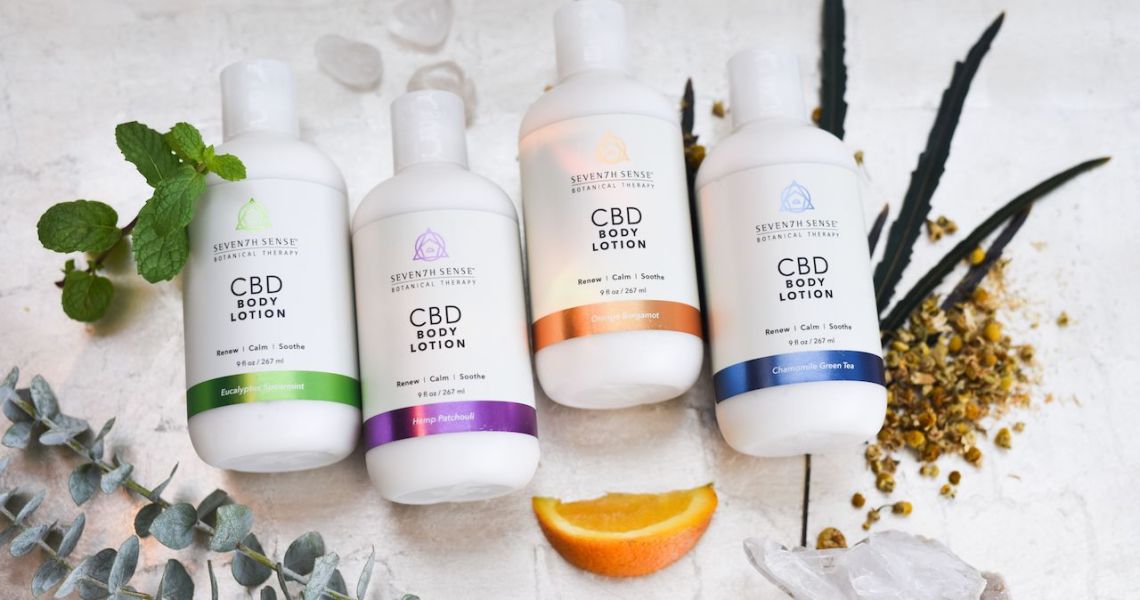Welcome to Glossy’s Beauty and Wellness Briefing. This exclusive and inside look at the beauty and wellness industries is meant to dig into the topics that really matter and shed light on the elephants in the room. Sign up here to get the briefing delivered to your inbox every Wednesday.
When Sephora announced last week it would carry CBD in brick-in-mortar stores via popular brand Lord Jones, it was clear that cannabis products — which have seen a slow trickle into traditional retail channels — were about to reach a critical mass.
Sephora began selling CBD products online in October 2018, becoming one of the first in beauty. Ulta followed in March with CBD skin-care brand Cannuka, which is now found in nearly all of its 1,200 locations. It added CBD brand Sagely Naturals in more than 500 stores this month. Though overall assortments are still small, you would be hard-pressed to find a retailer that sells beauty and wellness products, whether it’s Barneys New York by way of Beboe Therapies or CVS through Medterra, that does not currently sell a smattering of CBD products.
Portfolio company Green Growth Brands, which owns cannabis brands including Seventh Sense Botanical Therapy, Green Lily and Camp, recognized this. Around eight months ago, Peter Horvath, Green Growth Brands’ CEO, said the firm had just one of its own cannabis stores in Las Vegas. Today, its brands are carried in about 70 of its own Seventh Sense shops and more than 700 wholesale locations. Green Growth Brands announced last month that it will expand its own stores to 280 locations through Brookfield Properties’ shopping centers by the end of the year and will develop and supply a private-label line called Mood for 500 American Eagle Outfitters stores.
Horvath, who was a former L Brands and American Eagle executive, said Green Growth Brands’ differentiator is that it is a “merchant-forward” company, which translates to each of its brands having clear identities that correspond to the ever-evolving face of the cannabis customer. For instance, its Seventh Sense line, which launched in February as a CBD-only brand, is targeting older millennials and Gen Xers; it can be found in Abercrombie & Fitch stores. Camp, launched two months later, is solely centered in the THC arena versus CBD.
“We know that we bring an incredibly unique perspective and experience to the space. No one else, in CBD or cannabis, is a head-to-toe, merchant-led company,” he said of Green Growth Brands’ retail and, subsequently, sales strategy. “Our objective is to harmonize the experience in our cannabis stores, the store flow, associate training, merchandise navigation, packaging and so on, so that all are designed by the same people with the same objective in mind.”
Both investors and talent have come clamoring. In November 2018, the company went public on the Canadian Securities Exchange and reported $5.6 million in total revenue in third-quarter earnings. Former Victoria’s Secret CMO Jann Parish joined Green Growth Brands’ fold in late June to help create the brand personalities behind each of the existing lines, as well as to concept new projects.
Ad position: web_incontent_pos1
“We have to create an accessible point of view with these brands,” said Parish. For instance, the company’s Seventh Sense sells a line of face and body skin-care products that range in price from $7.50 for a CBD lip balm to $39.50 for a CBD face oil. At Sephora.com, the retailer’s CBD assortment starts at $48 and goes up to $125. While individual brands typically say this relates to ingredient potency of CBD in a product, such as the difference between full-spectrum and broad-spectrum CBD, the lay customer likely doesn’t understand how much is enough to work in, say, a cream, illuminating a larger issue with overall pricing consistencies.
“Seventh Sense customers are curious, but have less experience with cannabis or CBD, and so we need to speak to them in a way that makes sense,” said Parish. She said these shoppers are typically in their early-30s to late-40s. So far, both price and the brand’s accessibility at malls have helped get Seventh Sense off the ground. Horvath said that since launch, the company has seen almost 50% of customers convert in its owned stores.
Part of Green Growth Brands’ appeal is that it is focused on middle of the country. Its first mall location was not found in California or New York, but in Lexington, Kentucky. “Green Growth Brands started with our team going around the country and talking to real people; the brands were created based on that,” said Parish. “We chose to go to places and to customers other brands weren’t talking to because there is this coastal thing that happens in fashion and beauty. Our hope is all of these brands are inclusive enough to a larger swath of customers.”
In October, Green Growth Brands will further segment its largely female shopper with the launch of its Green Lily line that will be squarely focused on 20-somethings. It will be available in Seventh Sense stores, as well as its own branded Green Lily mall stores in the fall. Though Green Lily will be CBD-only and will focus on beauty and personal care at launch, Parish did note that it is exploring offering THC products in the line, as can be found in its Camp brand. (Camp sells a line of disposable pens and rosin coins in Green Growth Brand’s two Source locations in Nevada that are part dispensary, part retail shop.)
“These are two high-growth product categories that are going to reach millions of new consumers over the next five years,” said Horvath, of both CBD and THC. “Our expertise is in consumers. Our objective is to elevate the products and experiences across both categories.”




